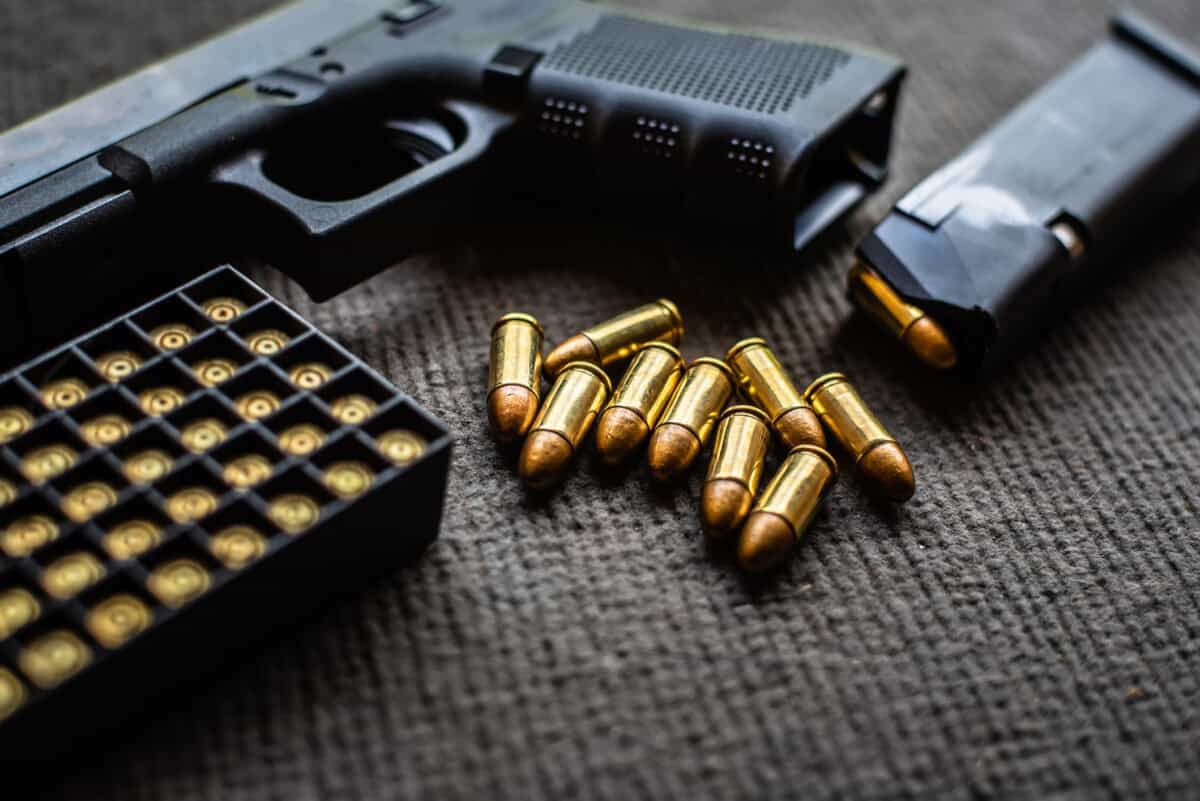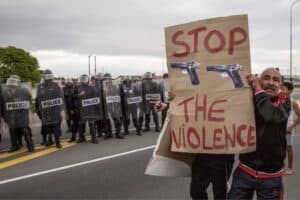Experts warn South Africa’s ballistics backlog and gun violence crisis shows current strategies are failing, putting law-abiding citizens at risk.

If South Africa is serious about protecting people from gun-related crime, it must immediately implement new strategies, according to experts.
They were reacting to SA Police Service (Saps) national head of ballistics Brigadier Mishak Mkhabela saying the number of guns seized by the police after they were used in criminal activities has increased.
Mkhabela was testifying before the Madlanga Commission of Inquiry recently and said in his ballistic laboratory, “there are currently 29 000 firearms linked to criminal cases”.
29 000 guns pending ballistic tests
He conceded that his team was struggling with a number of cases waiting for a ballistic test. He complained about being understaffed.
University of Limpopo professor Witness Maluleke said the Saps submission confirms the country is fighting a losing battle against gun-related crimes.
Maluleke said the bad thing about losing a fight against gun-related violence was that the negative impact was largely felt by law-abiding citizens.
ALSO READ: Tragic Weselton shooting claims two lives — toddler survives
“The current strategies are not working or effective at all. The indicated ballistics backlog showcases that the country is not winning the war against ever increasing gun-related violent crimes.
“Recruitment and training of additional staff members in the ballistics unit should be prioritised, with more emphasis placed on increasing capacity and resources to curb the delay of ballistics tests.
“The identified problem cannot be eradicated immediately; it will take many years to fully improve the required standards and operations. This unit requires new strategies to effectively work against gun-related cases.”
Expert calls for independent special units on source of illegal firearms
Damian Enslin, chair of the South African Gunowners’ Association (Saga), said if Saps and the government were serious about crime, they would establish independent special units whose sole task would be to eliminate the source of illegal firearms, deal with corruption in the police and the South African National Defence Force, establish a crime intelligence unit and properly resource these units.
“Unfortunately, we are not winning the war on crime. It appears that organised crime has allegedly infiltrated almost every aspect of the Saps and government.
“This is a major and root cause why crime is so rampant. We need to resource and appoint independent units and empower them to go after every aspect and at every level of Saps and or government.”
ALSO READ: Malema claims guilty verdict a ‘badge of honour’, vows to appeal
Enslin said corruption is also a major problem when it comes to dealing with rampant guns.
“We are looking at a long road and serious decisions need to be made if the government is really serious about tackling the major crime issue that we have in SA.”
Stanley Maphosa, executive director of Gun Free South Africa, said Mkhabela’s testimony is alarming but not surprising.
Mkhabela’s testimony not surprising
Maphosa said when a senior police officer tells a national commission that South Africa is a dangerous country and that his ballistics unit has run out of space to store more than 29 000 guns, it confirms how deeply the crisis has penetrated the criminal-justice system.
“Each firearm waiting for testing represents a life lost or a family still searching for justice. This is not simply a storage problem; it’s the visible symptom of a much deeper, long-term breakdown in how our country manages firearms.
“The backlogs at Saps are part of a system that has been under-resourced, mismanaged and corroded by corruption for more than two decades.”
ALSO READ: US shooter shot dead after killing at least four at LDS church [VIDEOS]
“It is an honest fact that at this rate, South Africa is not winning in this fight. Gun violence has nearly doubled over the past 15 years, from 18 people shot dead each day in 2009 to 33 today.
“Without timely ballistic analysis, investigators cannot link weapons to crimes, prosecutors cannot build solid prima facie cases and communities see killers walking scot-free,” Maphosa said.
He said the backlog also prevents experts from understanding broader patterns, such as how guns move between crimes or provinces, something that is crucial for preventing further shootings.
Unanswered questions and less accountability
He added that every delayed test means more unanswered questions and less accountability.
“This crisis cannot be solved by hiring a few extra analysts. We need systemic reform.
“Clear the existing backlog by seconding trained personnel and contracting retired specialists.
ALSO READ: Tannie, get your gun – women learn to shoot
“Fix the Central Firearms Registry so that every gun can be tracked from cradle to grave. Destroy all seized and obsolete guns once testing is complete, rather than storing them.”
The government must modernise the 2000 Firearms Control Act.
“When the Firearms Control Act was properly enforced between 2000 and 2010, gun deaths were cut in half.”






